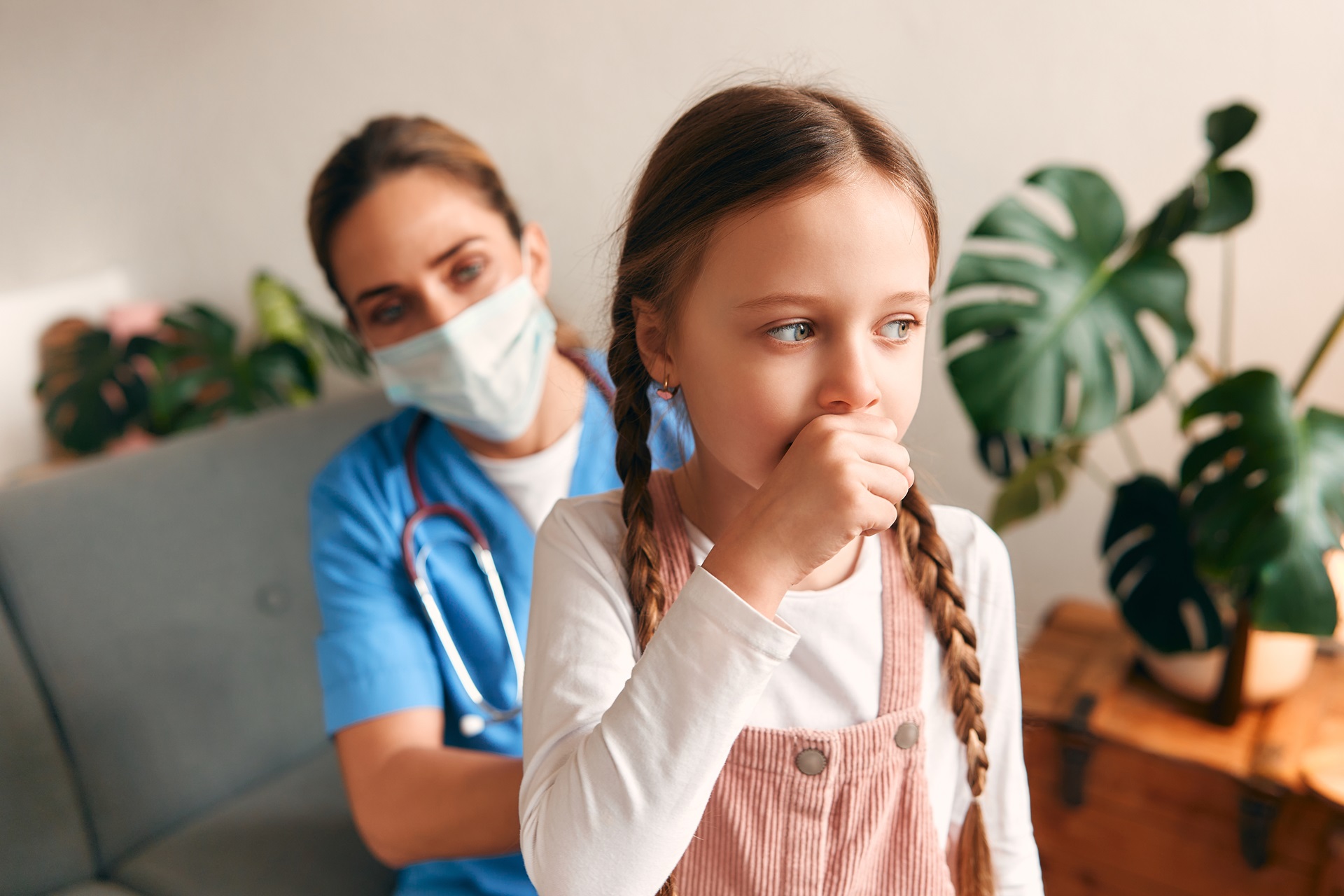Dr. Vinit Mehta, MD Pediatrician
Introduction
Pneumonia is a serious respiratory infection that affects millions of children worldwide. While occasional pneumonia is common, repeated episodes can be a cause for concern. If your child frequently suffers from pneumonia, it is essential to identify the underlying cause and take appropriate measures. This article explores potential reasons for recurrent pneumonia in kids, diagnostic approaches, treatment strategies, and preventive measures.


What is Recurrent Pneumonia in Kids?
Recurrent pneumonia is defined as two or more episodes of pneumonia in a single year or three or more episodes at any time with complete recovery between episodes. This condition may indicate an underlying health problem that needs medical evaluation.
Common Causes of Recurrent Pneumonia in Kids
Several factors contribute to recurrent pneumonia in children, including genetic, immunological, anatomical, and environmental factors.
1. Hereditary Disorders
Certain inherited conditions can predispose a child to repeated lung infections, such as:
- Cystic fibrosis – A genetic disorder leading to thick mucus accumulation in the lungs.
- Sickle cell disease – A blood disorder that increases the risk of lung infections.
2. Disorders of Immunity
A weak immune system makes a child more susceptible to infections. Immunodeficiency disorders include:
- HIV/AIDS
- Bruton agammaglobulinemia
- Selective immunoglobulin G subclass deficiencies
- Common variable immunodeficiency syndrome
- Severe combined immunodeficiency syndrome
- Chronic granulomatous disease
- Hyperimmunoglobulin E syndromes
- Leukocyte adhesion defect
3. Disorders of Cilia
Cilia are hair-like structures in the airways that help clear mucus and bacteria. If they are defective, infections are more likely.
- Immotile cilia syndrome
- Kartagener syndrome
4. Anatomic Disorders
Structural abnormalities in the respiratory tract can lead to repeated pneumonia episodes. These include:
- Pulmonary sequestration
- Lobar emphysema
- Gastroesophageal reflux disease (GERD)
- Foreign body aspiration
- Tracheoesophageal fistula (H type)
- Bronchiectasis
- Aspiration due to oropharyngeal incoordination
- Aberrant bronchus
5. Environmental Factors
- Exposure to smoke and pollution – Secondhand smoke and air pollution can irritate the lungs.
- Frequent viral infections – Repeated viral infections can weaken the lungs and lead to bacterial pneumonia.
- Poor nutrition – Malnutrition affects immunity, making children more susceptible to infections.
Diagnosis of Recurrent Pneumonia in Kids
To determine the cause of recurrent pneumonia, pediatricians may perform the following evaluations:
- Medical history and physical examination – Identifying patterns of illness, exposures, and underlying conditions.
- Chest X-ray or CT scan – To check for structural lung abnormalities.
- Complete blood count (CBC) – To assess immune function.
- Immunoglobulin levels – To detect immune deficiencies.
- Sweat chloride test – To screen for cystic fibrosis.
- Bronchoscopy – To detect airway anomalies or foreign bodies.
- Gastroesophageal reflux study – To identify aspiration-related pneumonia.
Treatment Options for Recurrent Pneumonia in Kids
1. Treating the Underlying Condition
Managing recurrent pneumonia requires addressing the root cause. This may involve:
- Cystic fibrosis treatment – Airway clearance therapy and enzyme replacement.
- GERD management – Acid reflux control with medications and lifestyle changes.
- Immunodeficiency treatment – Immunoglobulin replacement therapy.
2. Antibiotic Therapy
Depending on the suspected cause, antibiotics may be prescribed for bacterial infections. In cases of atypical pneumonia, macrolide antibiotics such as azithromycin may be used.
3. Hospitalization Criteria
Your child may need hospitalization if they exhibit:
- Severe respiratory distress
- Oxygen requirement
- Dehydration
- Persistent fever despite treatment
Preventing Recurrent Pneumonia in Kids & Adults
1. Vaccination
Vaccines are one of the most effective ways to prevent pneumonia.
- Pneumococcal vaccine (PCV13, PPSV23)
- Influenza vaccine
- Haemophilus influenzae type B (Hib) vaccine
- COVID-19 vaccine
Read More: Vaccines That Can Protect Against Pneumonia
2. Healthy Lifestyle Choices
- Avoid exposure to tobacco smoke and pollution.
- Ensure proper nutrition to boost immunity.
- Promote good hygiene to reduce infection risk.
3. Regular Medical Follow-ups
Children with a history of recurrent pneumonia should have regular check-ups with a pediatrician.
Frequently Asked Questions (FAQs)
Q1: How do I know if my child has pneumonia?
Symptoms include fever, cough, fast breathing, chest pain, and difficulty breathing.
Q2: Can pneumonia be prevented?
Yes, through vaccination, good hygiene, and avoiding environmental risk factors.
Q3: Should I worry if my child has had pneumonia more than once?
Recurrent pneumonia should be evaluated to rule out underlying conditions.
Q4: What should I do if my child has difficulty breathing?
Seek immediate medical attention.
Q5: When should I visit a doctor for my child’s pneumonia?
If your child experiences high fever, rapid breathing, chest pain, or persistent coughing.
Conclusion
Recurrent pneumonia in children can be alarming, but identifying and addressing the underlying cause can help prevent future episodes. Vaccination, lifestyle modifications, and regular medical check-ups are essential for protecting your child’s lung health.
📞 Call Now: +918347990180 for expert consultation with Dr. Vinit Mehta, MD Pediatrician.
📍 Find Us on Google Maps: Aashrey Child Clinic
🔗 External Resources:
